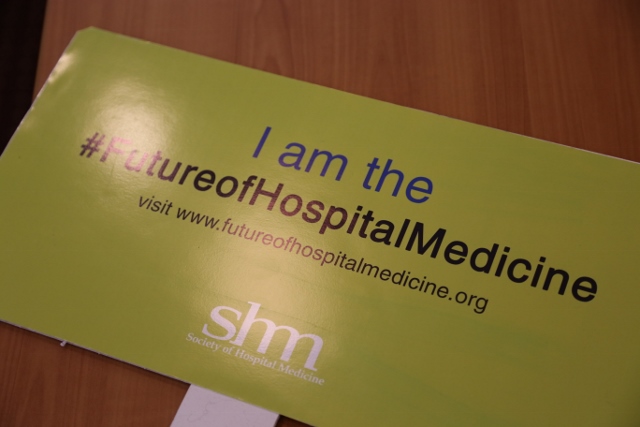By: Monica Shah
As I wrap up my research as an SHM student hospitalist scholar, I look back and think of all that I’ve learned. I am starting my second year of medical school with a whole new perspective on how hospital conditions affect patient outcomes. I know that, as a medical student and future physician, I will always be mindful of patient concerns. Now I have a better understanding of how maintaining good living conditions during hospitalization is an important part of treatment plans for patients for better overall functional recovery. Most importantly, I feel inspired by the numerous hospitalists I’ve encountered and the positive impact they make every day.
I still remember the first day I started my project at the beginning of the summer. I recall being unsure of what to expect with hospital medicine research. One thing I learned throughout the summer is that hospital medicine is a true collaborative effort of many healthcare professionals, including physicians, nurses, researchers, medical students, etc., and requires effective communication between hospital staff. Everyone works together with a common goal in mind: to improve hospital conditions and patient outcomes.
But what impresses me the most is the amount of passion I see in hospitalists. During hospitalist meetings, as various members of the team talked about their goals, I could really feel their dedication to patient safety and drive to change hospital policy. I began to learn the importance of quality improvement and that it is an ongoing process with hospitalists leading the way towards positive change.
From my own project, I really enjoyed talking with patients to better understand their sleep and activity levels during hospitalization. I realized that patient input is a key part of my research, and their concerns opened my eyes to the conditions that negatively impact the quality of their hospital stay, such as hospital noise, sleep disruptions etc. However, interventions are already underway, thanks to hospital medicine!
Along with my research study, I assisted another medical student, Mila, with one part of an intervention called SIESTA, which stands for Sleep for Inpatients: Empowering Staff to Act at University of Chicago Medicine. This is an educational program funded by the National Heart, Lung, and Blood Institute for healthcare staff to better understand how patients can obtain better sleep and to learn more about proper screening for sleeping disorders. Learning about SIESTA helped me understand how research is one piece of the bigger picture of inpatient care. The role of research studies, informed interventions, and clinical care are intertwined. I now understand how hospital medicine is a unique field that in addition to clinical care of hospitalized patients, investigates what hospital conditions need to be reformed, raises awareness and educates others of the issues at hand, and then applies changes to clinical practice to improve patient outcomes.
As I leave Chicago to start my second year of medical school, I feel grateful for the opportunity given to me through the SHM student hospitalist scholar program; I have gained a new perspective on quality improvement and patient safety. This summer program has been a great way for medical students, like myself, to explore the various career options available in hospital medicine and consider being the future leaders in developing better hospital policies and practices.
 Monica Shah is a second year medical student at Wayne State University School of Medicine in Detroit, Michigan. She received her B.S. from the University of Michigan in 2014, with a major in Neuroscience. She has been very active in the research community for the past 5 years, assisting in projects in the fields of child behavioral pediatrics, gastroenterology, and psychiatry. Currently, she is one of the three medical students who received the SHM Student Hospitalist Scholar Grant with which she is conducting research related to quality of care for patients.
Monica Shah is a second year medical student at Wayne State University School of Medicine in Detroit, Michigan. She received her B.S. from the University of Michigan in 2014, with a major in Neuroscience. She has been very active in the research community for the past 5 years, assisting in projects in the fields of child behavioral pediatrics, gastroenterology, and psychiatry. Currently, she is one of the three medical students who received the SHM Student Hospitalist Scholar Grant with which she is conducting research related to quality of care for patients.



Leave A Comment